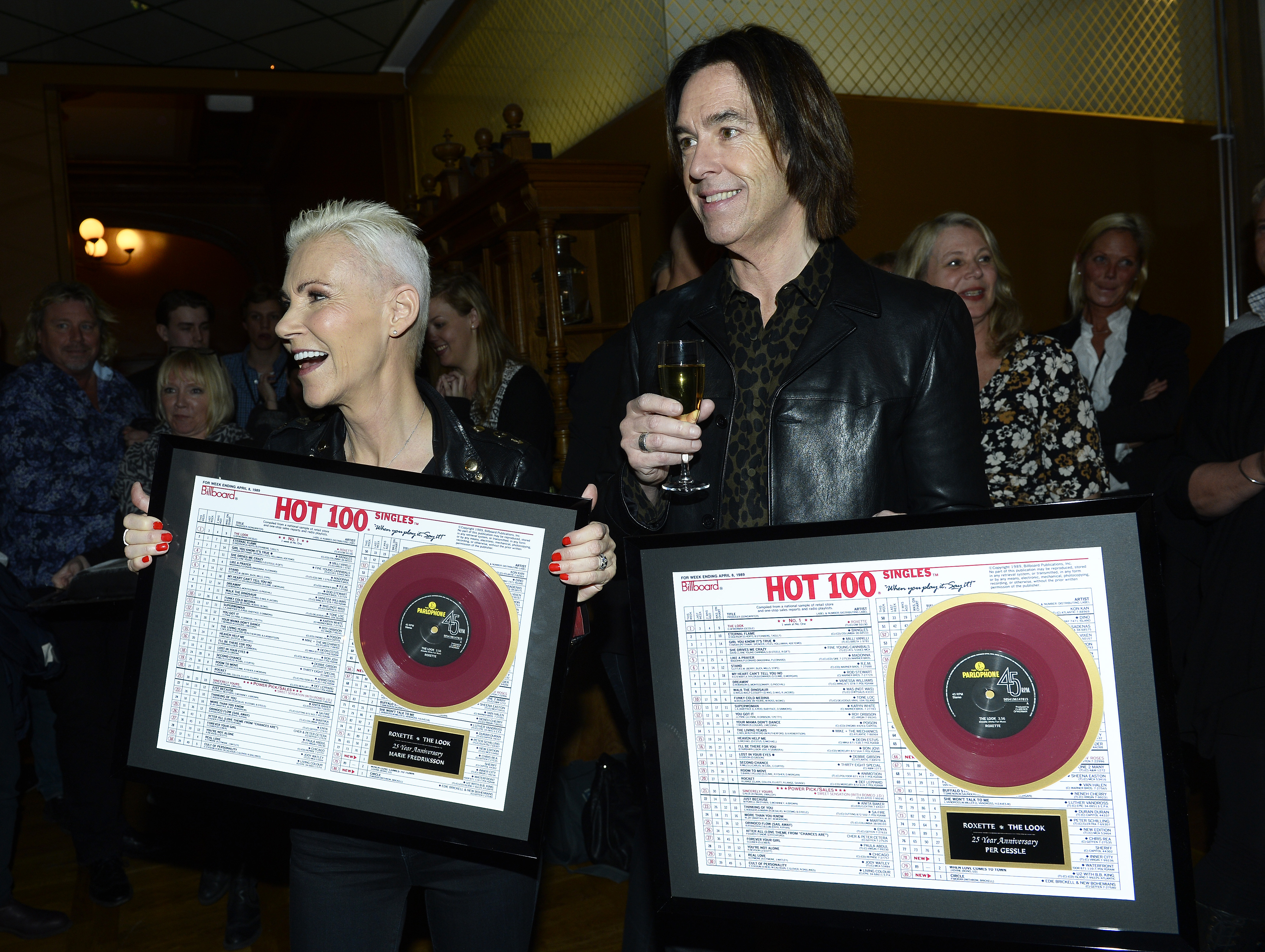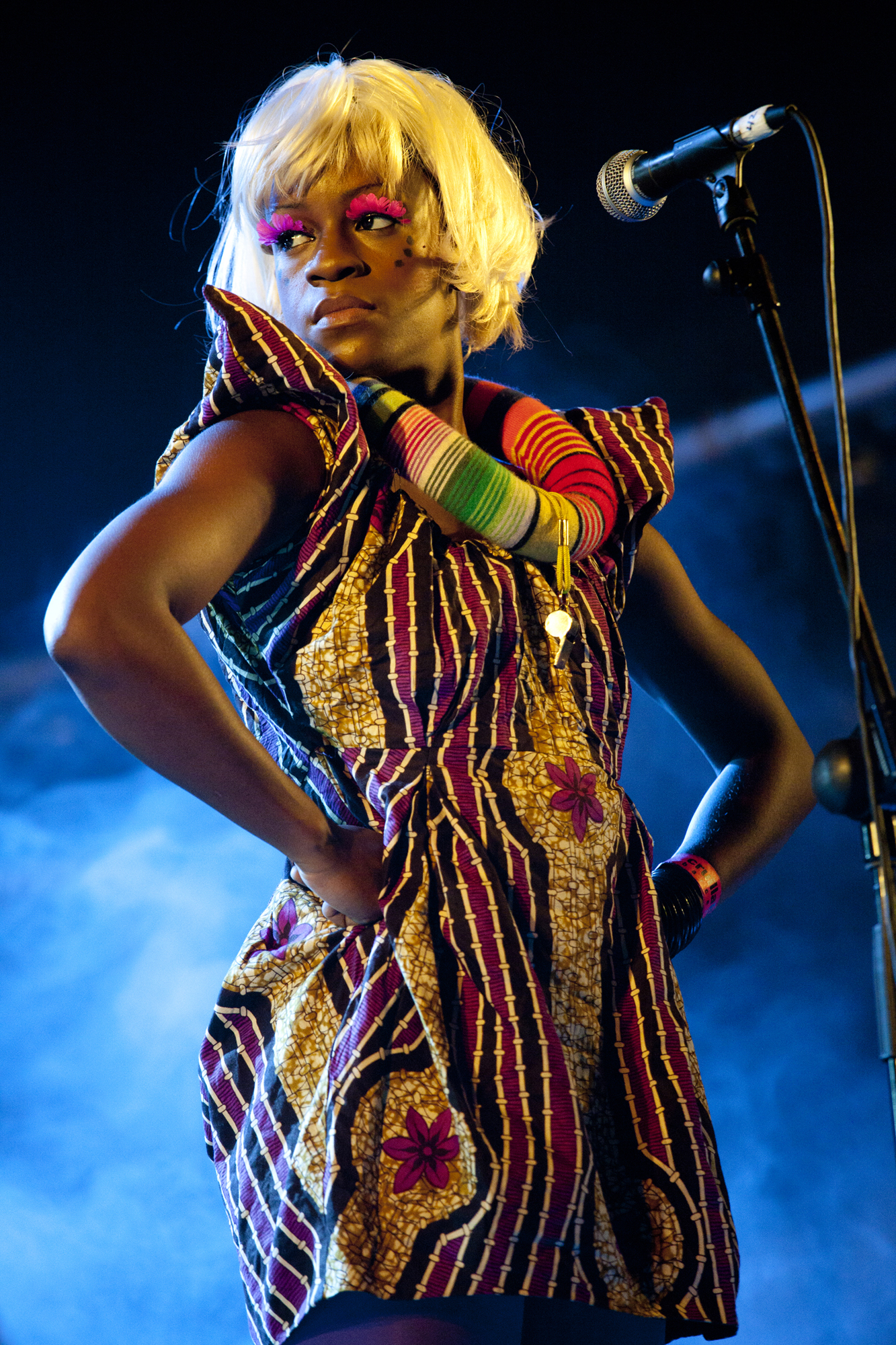|
Justin Hinds And The Dominoes
Justin Hinds (7 May 1942 – 16 March 2005) was a Jamaican ska and conscious roots reggae vocalist with his backing singers the Dominoes. He is best known for his work with Duke Reid's Treasure Isle Records, where his most notable song, "Carry Go Bring Come" recorded in late 1963, went to number one in Jamaica. He recorded seventy singles between 1964 and 1966, and was the most popular artist on the record label. Biography Hinds was born in Steertown, Saint Ann Parish, Jamaica. He started his musical career singing in bars and on the beach in Ocho Rios. Hinds moved to Kingston, Jamaica where he became influenced by Rastafari. He was turned down by Coxsone Dodd's label, but signed with Duke Reid's Treasure Isle Records. By this stage, the Dominoes consisting of Dennis Sinclair and Junior Dixon had become his backing vocalists. Work with Duke Reid His first recording with Duke Reid was "Carry Go Bring Come", made in late 1963 in one take. It became a big hit topping the Jamai ... [...More Info...] [...Related Items...] OR: [Wikipedia] [Google] [Baidu] |
Saint Ann Parish
Saint Ann () is the largest parish in Jamaica. It is situated on the north coast of the island, in the county of Middlesex, roughly halfway between the eastern and western ends of the island. It is often called "the Garden Parish of Jamaica" on account of its natural floral beauty. Its capital is Saint Ann's Bay. Saint Ann comprises New Seville, the first Spanish settlement in Jamaica. Saint Ann is the birthplace of reggae singers Floyd Lloyd, Burning Spear, Busy Signal, Bryan Art, Romain Virgo, Rashawn Dally, Chezidek, Shabba Ranks, Justin Hinds, Perfect, and Bob Marley. Marcus Mosiah Garvey, one of the seven recipients of Jamaica's Order of National Hero, was also born there. History Saint Ann is one of the oldest populated areas in the island of Jamaica tracing back to 600–650 A.D. It is believed to be the earliest Taino/Arawak settlement in Jamaica. When Christopher Columbus first came to Jamaica in 1494, he landed on the shores of Saint Ann at Discovery Ba ... [...More Info...] [...Related Items...] OR: [Wikipedia] [Google] [Baidu] |
Rastafari Movement
Rastafari is an Abrahamic religion that developed in Jamaica during the 1930s. It is classified as both a new religious movement and a social movement by scholars of religion. There is no central authority in control of the movement and much diversity exists among practitioners, who are known as Rastafari, Rastafarians, or Rastas. Rastafari beliefs are based on an interpretation of the Bible. Central to the religion is a monotheistic belief in a single God, referred to as Jah, who partially resides within each individual. Rastas accord key importance to Haile Selassie, Emperor of Ethiopia between 1930 and 1974, who is regarded variously as the Second Coming of Jesus, Jah incarnate, or a human prophet. Rastafari is Afrocentric and focuses attention on the African diaspora, which it believes is oppressed within Western society, or "Babylon". Many Rastas call for this diaspora's resettlement in Africa, a continent they consider the Promised Land, or "Zion". Rastas refer to t ... [...More Info...] [...Related Items...] OR: [Wikipedia] [Google] [Baidu] |
Reggae
Reggae () is a music genre that originated in Jamaica during the late 1960s. The term also denotes the modern popular music of Jamaica and its Jamaican diaspora, diaspora. A 1968 single by Toots and the Maytals, "Do the Reggay", was the first popular song to use the word ''reggae'', effectively naming the genre and introducing it to a global audience. Reggae is rooted in traditional Jamaican Kumina, Pukkumina, Revival Zion, Nyabinghi, and burru drumming. Jamaican reggae music evolved out of the earlier genres mento, ska and rocksteady. Reggae usually relates news, social gossip, and political commentary. It is recognizable from the counterpoint between the bass and drum downbeat and the offbeat rhythm section. The immediate origins of reggae were in ska and rocksteady; from the latter, reggae took over the use of the bass as a percussion instrument. Stylistically, reggae incorporates some of the musical elements of rhythm and blues, jazz, mento (a celebratory, rural folk form ... [...More Info...] [...Related Items...] OR: [Wikipedia] [Google] [Baidu] |
Tommy McCook
Tommy McCook (4 March 1927 – 5 May 1998) was a Jamaican saxophonist. A founding member of The Skatalites, he also directed The Supersonics for Duke Reid, and backed many sessions for Bunny Lee or with The Revolutionaries at Channel One Studios in the 1970s. Biography Early life Thomas Matthew McCook was born March 4, 1927. While some sources claim he was born to Jamaican parents in Havana, Cuba, and moved to Jamaica in 1933, others claim that he was born in Kingston, Jamaica. He was raised by his mother, who worked in the kitchen of a beachfront music club in Kingston. There, McCook sometimes watched bands rehearse, an experience he later cited as fostering an early interest in music. He began learning the tenor saxophone at age eleven, after his mother enrolled him at the Alpha Cottage School in 1938. Career McCook joined Eric Deans' Orchestra in 1943 after Deans selected him from the graduating class at the Alpha School. He spent several years playing in ... [...More Info...] [...Related Items...] OR: [Wikipedia] [Google] [Baidu] |
The Specials
The Specials, also known as the Special AKA, were an English 2 tone and ska revival band formed in 1977 in Coventry. After some early changes, the first stable lineup of the group consisted of Terry Hall and Neville Staple on vocals, Jerry Dammers on keyboards, Lynval Golding and Roddy Radiation on guitars, Horace Panter on bass, John Bradbury on drums, and Dick Cuthell and Rico Rodriguez on horns. The band wore mod-style "1960s period rude boy outfits ( pork pie hats, tonic and mohair suits and loafers)". Their music combines the danceable rhythms of ska and rocksteady with the energy and attitude of punk. Lyrically, their work (often written by primary songwriter Dammers) presented overt political and social commentary. In 1980, their '' The Special AKA Live!'' EP, featuring lead track "Too Much Too Young", reached No. 1 on the UK Singles Chart. In 1981, the recession-themed single " Ghost Town" also hit No. 1 in the UK. After seven consecutive UK top 10 ... [...More Info...] [...Related Items...] OR: [Wikipedia] [Google] [Baidu] |
Desmond Dekker
Desmond Dekker (born Desmond Adolphus Dacres; 16 July 1941 – 25 May 2006) was a Jamaican ska, rocksteady and reggae singer-songwriter and musician. Together with his backing group the Aces (consisting of Wilson James and Easton Barrington Howard), he had one of the earliest international reggae hits with "Israelites" (1968). Other hits include " 007 (Shanty Town)" (1967), " It Mek" (1969) and " You Can Get It If You Really Want" (1970). Early life Desmond Adolphus Dacres was born in Saint Andrew Parish (Greater Kingston), Jamaica, on 16 July 1941. Dekker spent his formative years in Kingston. From a young age he regularly attended the local church with his grandmother and aunt. This early religious upbringing, as well as Dekker's enjoyment of singing hymns, led to a lifelong religious commitment. Following his mother's death, he moved to the parish of St. Mary and later to St. Thomas. While at St. Thomas, Dekker embarked on an apprenticeship as a tailor before returning to ... [...More Info...] [...Related Items...] OR: [Wikipedia] [Google] [Baidu] |
Too Much Pressure (album)
''Too Much Pressure'' is the debut studio album by the English 2 tone ska revival band the Selecter. After the band's official formation in 1979 in Coventry, following the release of a song entitled "The Selecter" by an unofficial incarnation of the band, the band's hit single " On My Radio" prompted their labels 2 Tone and Chrysalis to ask the band to record their debut album. Working with producer Errol Ross, the Selecter recorded the album at Horizon Studios over two months. The album contains original material, mostly composed by band founder and guitarist Neol Davies, as well as numerous ska and reggae cover versions, in a similar fashion to the Specials' debut album. The album was released in February 1980 on 2 Tone records. The record was commercially successful, charting at number 5 in the United Kingdom. The record's singles, "Three Minute Hero" and "Missing Words", made the top 25 of the UK Singles Chart. The album was also critically successful, and has had lasting pr ... [...More Info...] [...Related Items...] OR: [Wikipedia] [Google] [Baidu] |
The Selecter
The Selecter is an English 2 tone ska revival band, formed in Coventry, England, in 1979. The Selecter featured a diverse line-up, both in terms of race and gender, initially consisting of Arthur 'Gaps' Hendrickson and Pauline Black on lead vocals, Neol Davies and Compton Amanor on guitar, Desmond Brown on Hammond organ, Charley 'Aitch' Bembridge on drums, and Charley Anderson on bass. The band's name comes from the original "The Selecter" track, which appeared on the flip side of The Special AKA's "Gangsters" single in 1979, and was written by Neol Davies and John Bradbury, produced by Roger Lomas and featured Barry Jones on trombone. The band were one of the most successful ska bands of the 2 tone era, notching up several top forty singles in the UK Singles Chart. Having co-released the first 2 tone ska single with the Specials, they were one of the founding acts of the movement. Though influential, the original lineup only remained together for a year, and even with re ... [...More Info...] [...Related Items...] OR: [Wikipedia] [Google] [Baidu] |
Cover Version
In popular music, a cover version, cover song, remake, revival, or simply cover is a new performance or recording by a musician other than the original performer or composer of the song. Originally, it referred to a version of a song released around the same time as the original in order to compete with it. Now, it refers to any subsequent version performed after the original. History The term "cover" goes back decades when cover version originally described a rival version of a tune recorded to compete with the recently released (original) version. Examples of records covered include Paul Williams' 1949 hit tune " The Hucklebuck" and Hank Williams' 1952 song " Jambalaya". Both crossed over to the popular hit parade and had numerous hit versions. Before the mid-20th century, the notion of an original version of a popular tune would have seemed slightly odd – the production of musical entertainment was seen as a live event, even if it was reproduced at home via a ... [...More Info...] [...Related Items...] OR: [Wikipedia] [Google] [Baidu] |
The Wailers
Bob Marley and the Wailers (previously known as the Wailers and prior to that the Wailing Rudeboys, the Wailing Wailers and the Teenagers) were a Jamaican ska, rocksteady and reggae band. The founding members, in 1963, were Bob Marley (Robert Nesta Marley), Peter Tosh (Winston Hubert McIntosh), and Bunny Wailer (Neville Livingston). During 1970 and 1971, Wailer, Marley and Tosh worked with renowned reggae producers Leslie Kong and Lee "Scratch" Perry. Before signing to Island Records in 1972, the band released four albums. Two additional albums were produced before Tosh and Wailer departed from the band in 1974, citing dissatisfaction with their treatment by the label and ideological disagreements. Marley continued with a new lineup, which included the I-Threes, and went on to release seven more albums. Marley died from cancer in 1981, at which point the group disbanded. The Wailers were a groundbreaking ska and reggae group, noted for songs such as "Simmer Down", "Tren ... [...More Info...] [...Related Items...] OR: [Wikipedia] [Google] [Baidu] |
Record Chart
A record chart, in the music industry, also called a music chart, is a ranking of Sound recording and reproduction, recorded music according to certain criteria during a given period. Many different criteria are used in worldwide charts, often in combination. These include record sales, the amount of radio airplay, the number of music download, downloads, and the amount of streaming media, streaming activity. Some charts are specific to a particular musical genre and most to a particular geographical location. The most common period covered by a chart is one week with the chart being printed or broadcast at the end of this time. Summary charts for years and decades are then calculated from their component weekly charts. Component charts have become an increasingly important way to measure the commercial success of individual songs. A common format of radio and television programs is to run down a music chart. History The first record chart was founded in 1952 by Percy Dick ... [...More Info...] [...Related Items...] OR: [Wikipedia] [Google] [Baidu] |
Backing Vocalist
A backing vocalist is a singer who provides vocal harmony with the lead vocalist or other backing vocalists. A backing vocalist may also sing alone as a lead-in to the main vocalist's entry or to sing a counter-melody. Backing vocalists are used in a broad range of popular music, traditional music, and world music styles. Solo artists may employ professional backing vocalists in studio recording sessions as well as during concerts. In many rock and metal bands (e.g., the power trio), the musicians doing backing vocals also play instruments, such as guitar, electric bass or keyboards. In Latin or Afro-Cuban groups, backing singers may play percussion instruments or shakers while singing. In some pop and hip-hop groups and in musical theater, they may be required to perform dance routines while singing through headset microphones. Styles of background vocals vary according to the type of song and genre of music. In pop and country songs, backing vocalists may sing harmony to ... [...More Info...] [...Related Items...] OR: [Wikipedia] [Google] [Baidu] |








